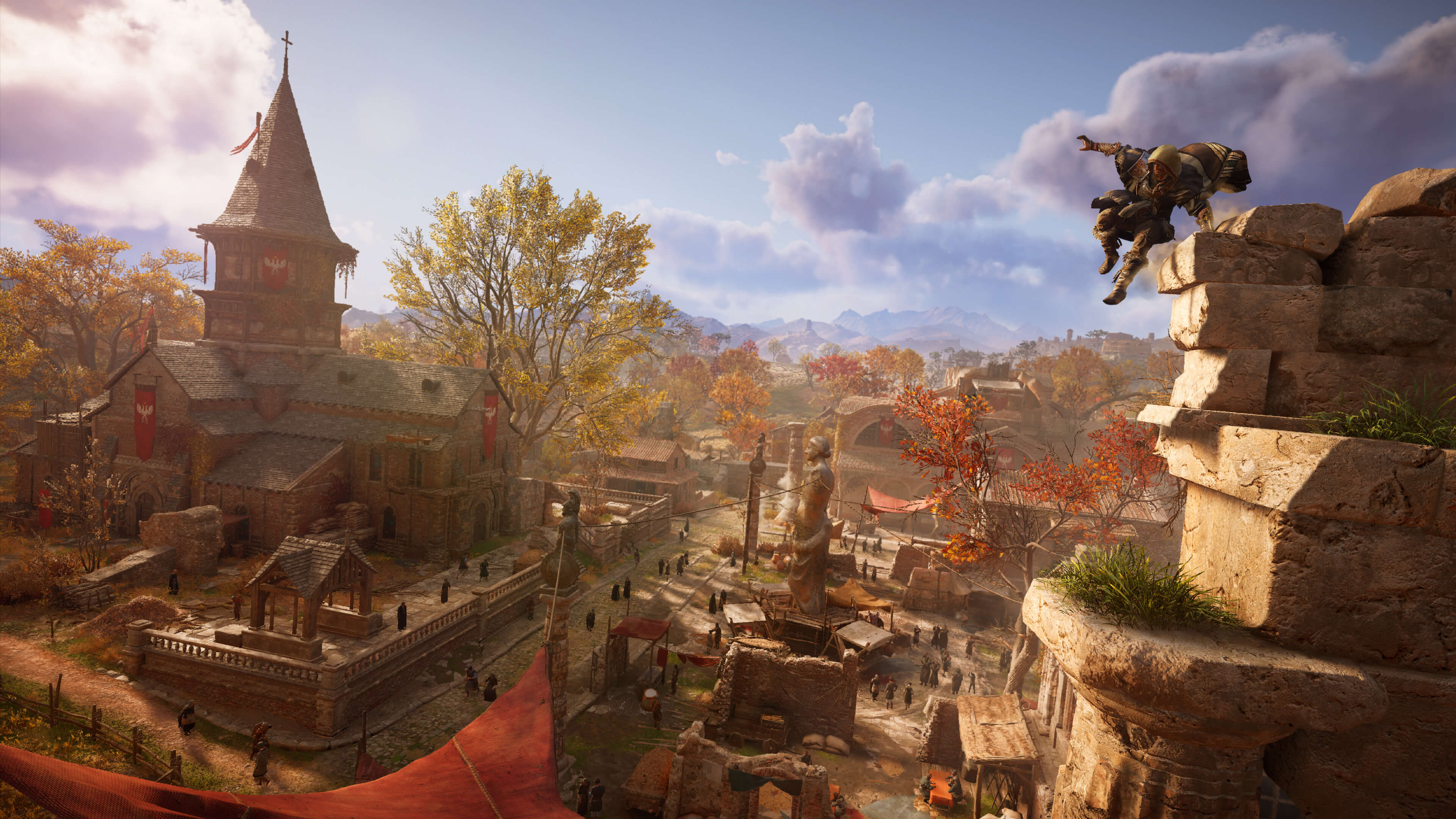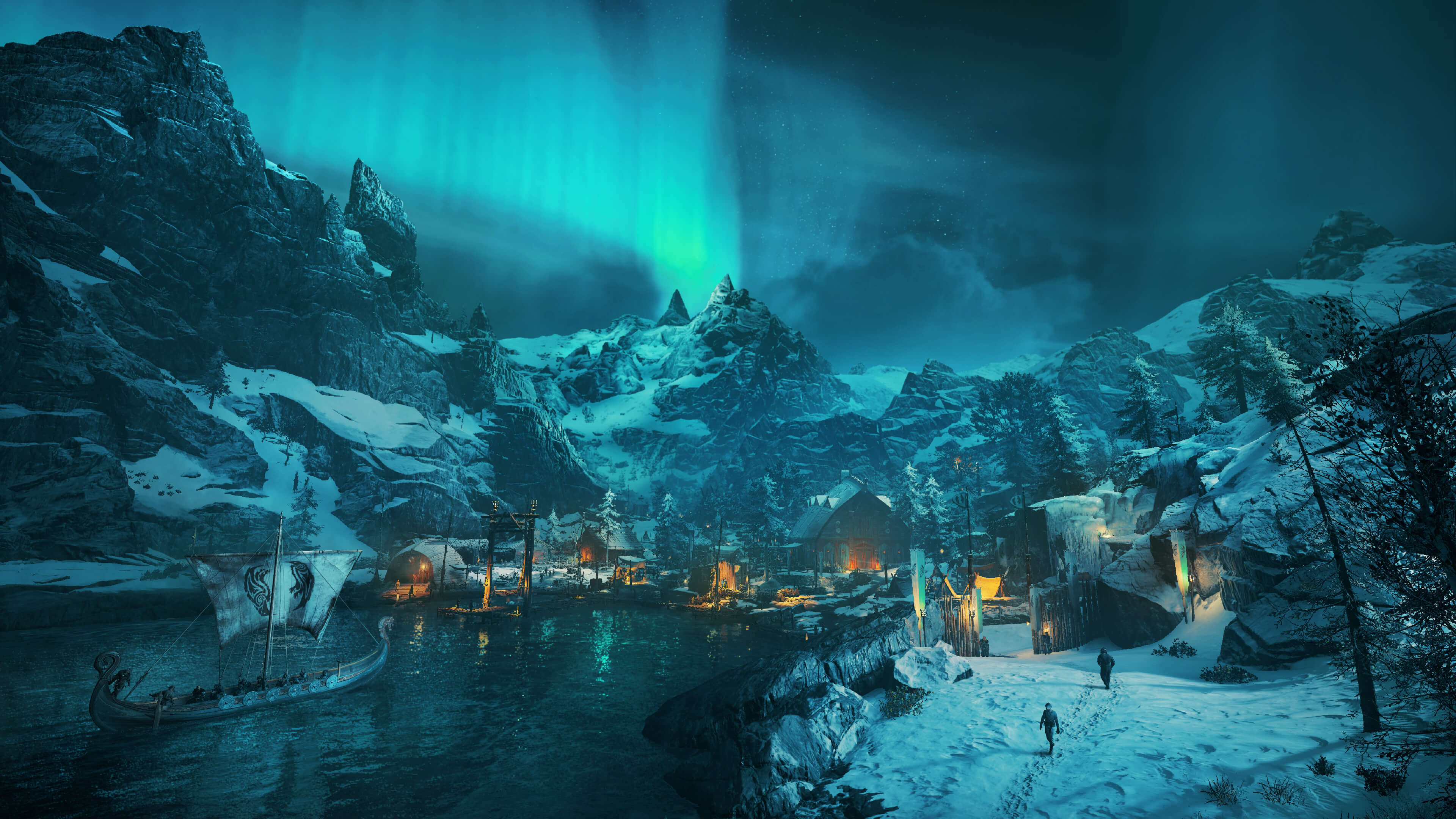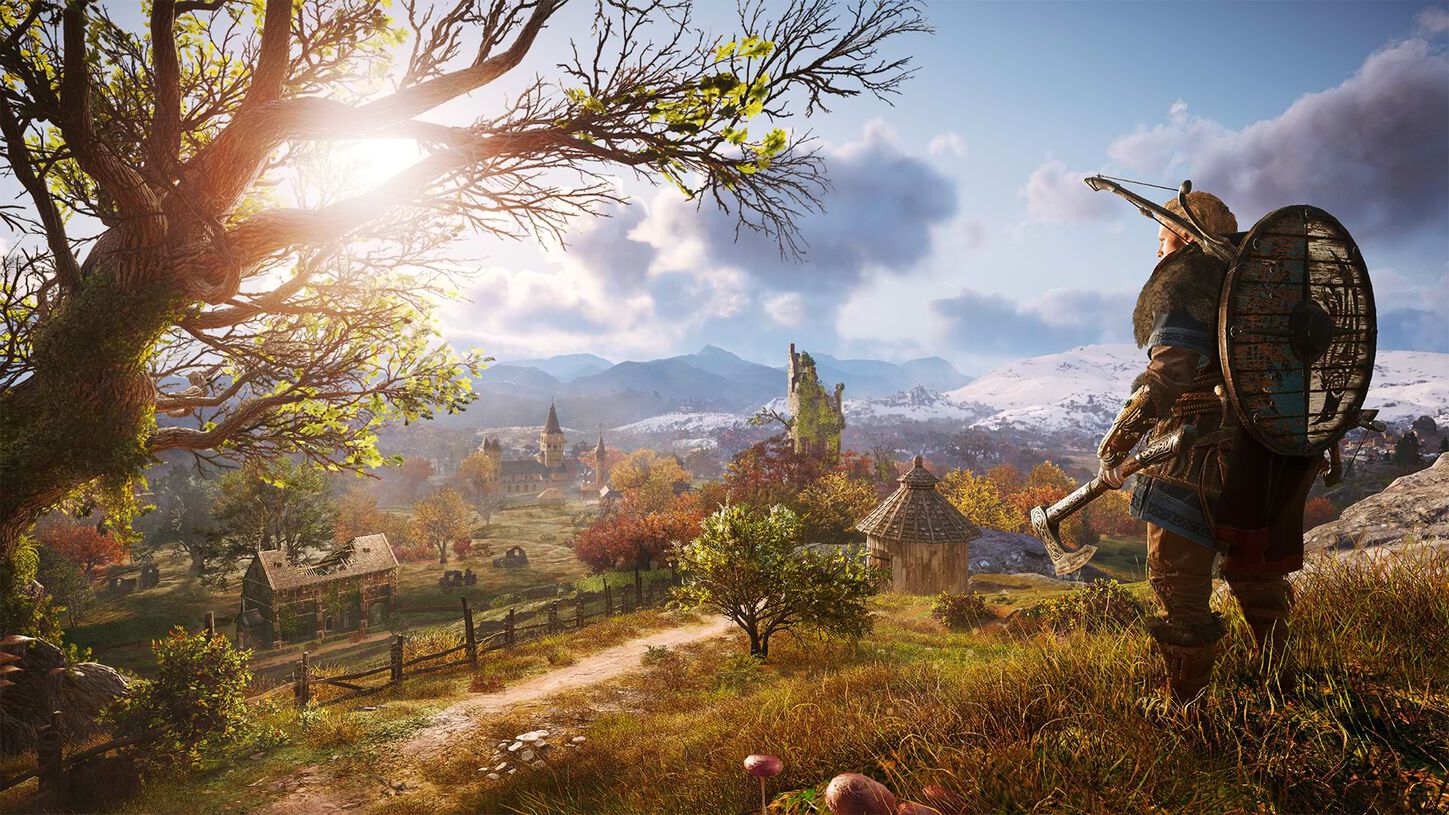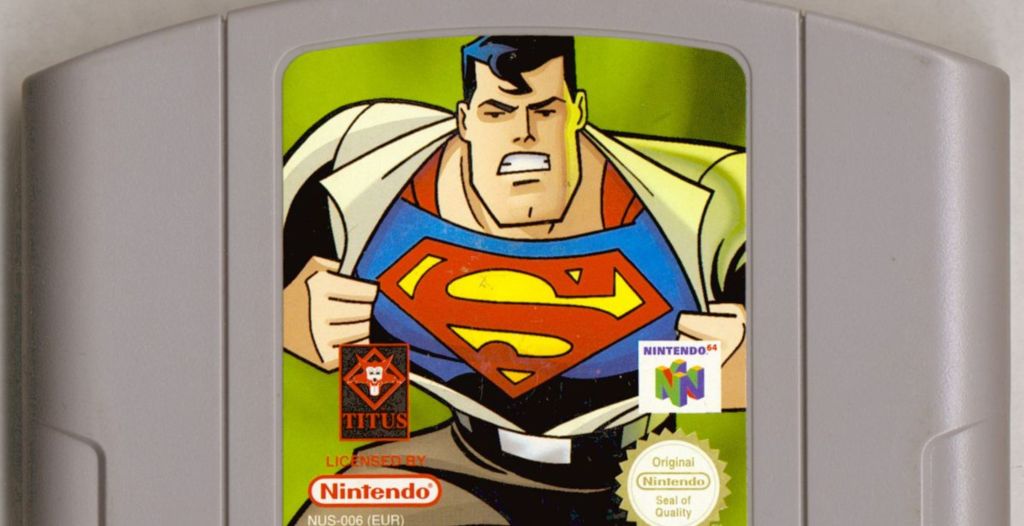It’s 873 A.D. and England is lousy with kings. It’s a hostile land awash in Danes, Saxons, and Roman ruins. It’s a crossroads of cultures and crumbling empires where Pagans clash with Christians. Eivor, the hero of Assassin’s Creed Valhalla, tears through this mytho-historical landscape, having come from Norway to establish a new home for their Raven clan. On these new shores, in a war-torn landscape, Eivor is always asking: what makes a good king? As I played through Eivor’s journey I found myself asking: what makes a great Assassin’s Creed?
Eivor gets the hidden blade early and unceremoniously in Valhalla. Their adopted brother Sigurd, just returned from raiding in distant lands in the East, comes home with two Assassins. During a feast, they pull Eivor aside and give them the hidden blade. Eivor places it on their wrist, on the top, not the underside. “I won’t make the same mistake you did,” they said, pointing to the missing finger of the Assassins that has marked their initiation into the order since the franchise started in 2007.
Videos by VICE
It’s a small difference, but it makes a huge impact. That’s Assassin’s Creed Valhalla all over, a game of small differences that adds up to a great Assassin’s Creed game. It’s a game of iteration and variation, one so similar to its predecessors but so different in execution that it has made an old franchise feel new again.

When I climb to the top of a cliff, statue, or castle in Valhalla and cast my gaze to the horizon as I have hundreds of times in other Ubisoft games, the map doesn’t fill up with curiosities as it has in the past. Instead of distinct markers, I’m given dots in three different colors. Yellow for wealth, white for artifacts, and blue or mysteries. These points of light on the horizon only get specific when I got close to them. A yellow dot became a new item hidden in a church or precious resources locked away in a monastery. Mysteries could be a side quest or a literal mushroom trip. The artifacts might be the page from a saga or a new tattoo or haircut for Evior.
Synchronizing all the points of a map won’t unlock all these points on the map either, Valhalla pushes you to get out in the world and explore just a little more than I was used to in an Assassin’s Creed. And there’s no minimap, so my eyes were constantly on the screen instead of buried in the HUD. Fundamentally, it’s still an Assassin’s Creed game. There’s still a big map with stuff to do but by changing the way I discovered those points of interest on the map, by making them a bit more of a mystery, it made me enjoy the rote act of discovery just a little more.
Many of these side activities too have more mystery to them than previous Assassin’s Creed titles. Gone are the days when a new quest meant trudging between highlighted points on the map. The mysteries discovered in the wild come with little direction other than what the characters and environment tell you and they can break several ways. I accidentally helped a little girl steal a horse, discovered a cat for my ship, and finished a Pagan blood rite meant to bring life back to a wilting field all while wandering the roads of England. Reloading the game showed me these small moments could have gone a different way. The blood rite, in particular, went very differently depending on the choices I made. All for a five minute aside that never populated in my quest log.

Valhalla, like its predecessors Origins and Odyssey, is an enormous game. The title screen ran 8 hours after I started. At 40 hours in, there’s large portions of the map I’ve yet to explore and whole activities I’ve yet to partake in. This could easily be a 200 plus hour long game if I wanted it to be. That freedom and density overwhelmed me in both Origins and Odyssey. Many of their systems felt disconnected from the main game.
In Odyssey I could grind gear to drive up my power score and build out my ship. Neither felt particularly rewarding. Part of that was that Kassandra, while charming, never felt connected to the world. The story never made me care about her quest to discover her identity and the side plot that has her uncover and assassinate members of the Ancient Order—while a fun mechanic—didn’t connect to her journey in a way that made me need to see the story out.
Odyssey’s map was so bloated and filled with content that I often felt overwhelmed and directionless. I could participate in the war between Athens and Sparta, but never felt a need to. I sailed between the islands, not driven by a sense of adventure, but because they were demarcated by level requirement.

Valhalla has most of Odssey’s systems but all of them feed back into Eivor’s story. This is a game about building a community on the shores of a new land. All the different quest types feed back into the community Eivor is building. The main storyline sees them building alliances or warring against their neighbors. Raiding brings in important supplies for the community. Assassinating targets for the Hidden Order reduces the number of enemies actively attacking Evior and their settlement. Hunting legendary beasts doesn’t just unlock new quests, but also opens up access to a romantic subplot with a member of the hunter’s lodge.
This is all customizable. Valhalla lets you partake in certain systems and discard others. Don’t want to do the hunting missions? Don’t build the hunting lodge. There’s a whole set of fishing missions I know nothing about because I haven’t built the building that would generate the quests. Valhalla is allowing me to build the Assassin’s Creed I want. The only thing I’m forced to do is raid, because it’s the only way to get the specific resources needed to build up Eivor’s community. Beyond that, I’m free to engage with or ignore whole types of activities and never feel like I’m missing something.
That sense of customization extends to Evior. A connection to the story, and more importantly, the characters, of an Assassin’s Creed help separate the good from the bad. Black Flag is beloved, in part, because Edward Kenway is a charismatic and lovable rogue. When Odyssey worked it was because Kassandra was relentlessly charming. Origins worked because I wanted to see the end of Bayek’s journey. I wanted to know how he and his wife Aya processed their grief.

Eivor is a good character, charming in both their male and female aspect, but Valhalla has allowed me to make my version of them. There’s cosmetics like tattoos and haircuts, but it’s deeper than that. Valhalla’s story is about Pagan and Christian societies fighting and coming to terms. It’s about leaders, good and bad, and the changes a person goes when they pursue a dream. It’s about what you’re willing to give up about who you are for the good of your community. It’s about what it means to be a hero, and the inevitable end that comes to all heroes.
Through all of that, I was making choices as Eivor. I made a conscious choice early on to lean into their Pagan background and it’s colored the things I’ve done. When I stumbled upon a fallow field I could help a völva perform a blood ritual to revitalize the land or urged her to help a sick farm. I chose blood for the field and the field flourished. The farmer died. I tutored a young Christian Saxon king in the ways of his Danish subjects, doing my best to toughen him up for the fights to come.
During an early story mission, I needed to win the support of a rival Jarl. The Jarl wouldn’t commit until I’d helped them root out a traitor in her inner circle. Doing so took a lot of talking to people in town, rooting around in a swamp, and making deductive leaps that weren’t spelled out explicitly by the game. I could, at any time during the investigation, leap to a conclusion. Valhalla would have let me fail forward. A colleague playing the game did just that. He missed key evidence during the investigation and accused the wrong person. I spent an inordinate amount of time looking over everything and found a smoking longship that let me identify the traitor beyond a shadow of a doubt.

In both instances, Valhalla moved the story forward. I gained an ally for my community and a new raider for my ship. My colleague gained the ally, but the relationship is strained and the Jarl is down several warriors instead of just one.
Valhalla is a game obsessed with the question of what makes a great leader. Every main story mission has been a meditation on what it means to be a good king. In Valhalla, at least 40 hours in, there is no simple answer. Eivor’s journey is one about leadership and it’s weird right now to play an Ubisoft game that’s so interested in that question.
Ubisoft is a game studio run by terrible leaders. Valhalla’s creative lead, Ashraf Ismail, stepped down in June over allegations of misconduct. In July, three top executives left the company amid a wave of scandal. Some of the allegations were sexual in nature, but many centered around physical and mental abuse. Serge Hascoët, a top creative executive with close ties to the Guillemot family, resigned during this period. Ubisoft is a company lousy with bad kings.
Valhalla is a beautiful game, one of the best Assassin’s Creeds I’ve played. But the message of good governance it’s trying to deliver feels self-serving because the company that produced it fostered abusive leaders for years. Reports of the company culture included air of permissive sexual abuse, reports of executives screaming at employees, and choking people during a Christmas party.
All of which makes Valhalla feel hollow. Whatever its message, whatever issues it purports to examine, it’s the product of a culture that amply demonstrated how little it actually cares about justice and responsibility. There has long been a tension in Ubisoft’s games between their claims to broad representation and perspectives and their milquetoast politics, but 2020 revealed the cynicism and sleaze that’s been masked by polish and spectacle.
In video games, the bad kings are defeatable. Heroic leaders learn lessons, become better, overcome challenges, and slay evil and corrupt. In the real world, the evil and corrupt are the leaders, and when finally held to account, they let a few heads roll while they promise to improve “the culture”, to hire a new executive or two who will bring change. But they keep the money, and they keep the power while deferring the day when that change is supposed to arrive, along with answers about how deep the problems went. Then they release a game like Valhalla, which will more than keep the customers satisfied. It’s a very good Assassin’s Creed game, from a company and a culture that’s rightly in disgrace.
More
From VICE
-

Screenshot: Nintendo -

Screenshot: Titus Interactive -

Screenshot: Untold Tales -

Screenshot: Ubisoft
